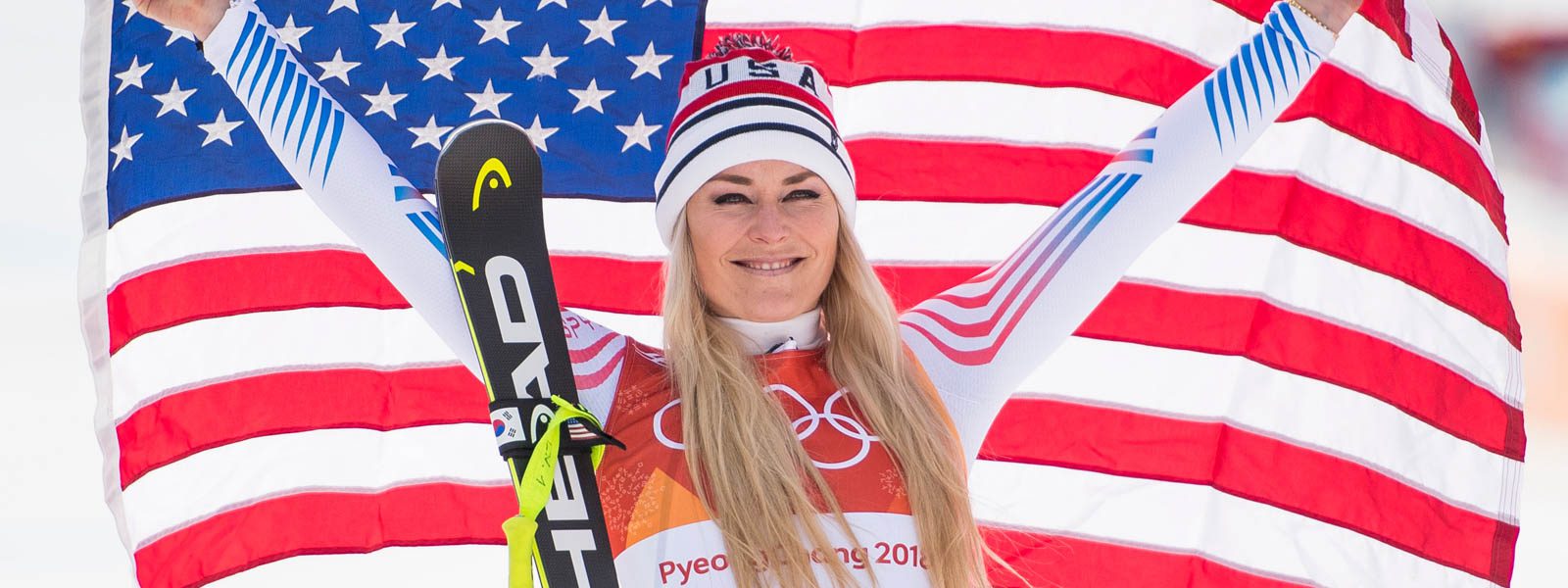Eat Well, Ski Fast!
If I only knew then what I know now. My eight years on the USST were awesome. They were filled with focused training on the hill and intense workouts in the gym. All with my best friends. However, back in the 80s there was not a lot of focus on nutrition and how it affects performance. Instead of selecting which ingredients would give us the best nutrients to fuel our bodies during training and racing, our coaches were just trying to find enough food, no matter how disgusting and greasy, to keep our weight up during the three months in Europe. During the season, our American Downhiller team usually ate in the back of hotels with the employees, which generally meant we ate all the dregs and leftovers. We supplemented mostly with a lot of white bread and milk chocolate. Delicious, yes, but not great nutrition! We were not exactly a well-fueled team. Who knows how that may have affected our results in the long run.
Fast forward to today and things have changed drastically. Not only does the USST have a laser focus on nutrition and hydration, there is a wealth of information available to racers and teams to help them fuel their athletes for peak performance. Now it is only a matter of motivation. What will make a young athlete grab something healthy over something that’s highly processed and filled with sugar?
Healthy nutrition may not win you a race or cure your rotation problems in GS, but it can be the reason you fall short of the goals you worked so hard for. Research varies on how much poor nutrition or slight dehydration can affect your performance (3%-5%), but let’s just look at what a one percent drop in performance does to your result in a Slalom race.
Alpine ski races are won and lost by tenths, even hundredths of a second. Take last year’s final World Cup Women’s slalom result where Mikaela Shiffrin beat out Wendy Holdener by just seven hundredths of a second after two runs. The total time was 108.15 seconds. One percent of that total time is just over a second! Shiffrin only won by seven hundredths.
So, if bad nutrition can negatively affect performance by one second per race, isn’t that enough reason for a racer to change their eating habits, and work on eating quality food every day to help boost performance on the race hill?
Well, if you need more reasons, listen to the following messages from some of our heroes:
Mikaela Shiffrin
“Nutrition is very important to any athlete. When I am eating healthy I feel great— ready to take on the day and whatever it may bring. When I have splurges of unhealthy food I usually feel sluggish and sometimes sick to my stomach because those foods don’t help me sustain working out and training.”
Steven Nyman
“Nutrition is key. Make sure you eat healthy foods and plenty of them. Skiing is so strenuous on your body so when you are done your body has a lot to rebuild. Why not rebuild it with the best food you can find?”
Alice McKennis
“Nutrition is very key as an athlete. You can do all the right things for training on and off the hill but if you are not giving your body the right fuel all that hard work might be for nothing. When you look at all the many challenging things about ski racing like learning solid technical skills, learning line and tactics, and the mental skills you need for ski racing, eating healthy can truly be one of the easier and straight forward steps you can take in your ski racing career that can make a difference. The bonus also is that by learning to eat healthy at a young age you will forever have that skill for the rest of your life!”
So, the next question is how can you make better decisions in regards to eating healthier? Unfortunately, there are two things going against you. First, there is a ton of conflicting information out there mucking up the facts. Second, there is a LOT of crappy food out there staring you in the face, calling your name! Here are a few suggestions to get you started.
JERF – Just Eat Real Food
Yes, this is a thing. JERF. And it is relatively easy to do. Eat food that has not been packaged or changed or manipulated into something different. Fruits and vegetables can be just washed and eaten. Slice up your favorite veggies, cover in healthy oil and roast them for a yummy meal. Oil up some grass-fed meat and throw it on the grill. Free-range eggs can be eaten any time of day! Start researching and learning about which foods and ingredients are good for athletes, and which ones may hinder performance. However, as USOC Sports Dietician and Performance Chef, Megan Chacosky, reminds us, “Everyone’s body digests and reacts to different foods in unique ways, so it’s important to know that what works well for you may not always be what others are doing.”
Hint: 75% of what you buy in at the Grocery store should go into your fridge when you get it home. If not, you are buying too much packaged food!
Read the Food Labels
There is a new food label out now that gives great information including any nasty Added Sugars. Search out the hidden additives and preservatives secretly lurking in the list. Be a detective in the grocery store and be on the lookout for anything you can’t understand. Chances are, if you can’t pronounce it, it’s probably not great for you. When in doubt, the less ingredients the better. Read the labels!
Hint: Research and learn all the names that sugar and artificial sweeteners are called and be on the lookout – there are many.
Plan Ahead
A big barrier to eating healthy is waiting to the last minute to find something to eat. There is not much you can buy in a gas station or quick mart that is healthy. Maybe, just maybe, you can find a banana or some Greek yogurt, but that’s about it. So, take the time the day before to cook and package your meals if you will be on the road. You will be full of healthy food and sleeping like a baby early while your competitors are out late ordering whatever they can find on the fast food menu!
Hint: Buy lots of containers so you can pack and take all that prepared food in your fridge to workouts and races.
Learn to Cook
Not only will you train and perform better, you will be very popular if you learn how to cook yummy healthy food! There are a ton of great recipes online that you can try. Experimenting is half the fun! Once you know a little about good food, you can wade through the many unhealthy recipes you run across. One of the ways we cover sports nutrition at ELITEAM is with a cooking workshop. Below is a healthy recipe for some delicious Banana Bread. It’s been an ELITEAM favorite for years!
Hint: We used to pack some cooking equipment when we traveled to Europe so we could cook in our rooms and control our diets better. Pack up the blender and hotplate!
Hydrate
Your body is made up of more than 60% water. Dehydration starts when you have lost as little as 2% of your body weight from water. Drink lots of fluids gradually throughout the day and eat fruit and veggies with high water content at meals. Things like oranges, berries, pineapples, eggplant, zucchini and carrots. Soups and smoothies are great too!
Hint: Carry that filled water bottle with you everywhere. Make it part of your routine.
80-20 Rule
At ELITEAM we believe in the 80-20 rule. Eat healthy and nutritionally 80% of the time which will build muscle, keep you from getting sick and boost your performance. For the other 20%, have FUN! Treat yourself to ice cream or my favorite vice – Oreos!
Hint: Pick and choose the times you treat yourself. Don’t splurge the day before your races or on big training days.
Parents and Coaches
This advice goes out to the coaches and parents as well. Set a good example and feel healthier yourselves by eating real food and planning ahead. No matter how your kids ski, they will LOVE coming back to the condo and sitting down to a fantastic, fabulous, farm-to-table, foodie feast you prepared. And Coaches, we all know you have crazy schedules, but do your best to eat healthy so you can coach all day with energy, compassion and expertise!
Hint: Your athletes are always watching, so practice what you preach.
As Daron Rahlves says, “hundies matter”, so good nutrition can be your secret weapon for speed. It doesn’t involve sweat, pain or hours in the ski room, it just involves some reading, practice and preparation! Make this Winter your breakout season in the realm of nutritional excellence.
ELITEAM Banana Bread Recipe
Ingredients:
1 ¼ cup oat flour
1 ½ tsp baking soda
½ tsp sea salt
¼ cinnamon
1 tbsp chia seeds
1 tbsp flaxseed meal
2 large free-range eggs, lightly beaten
2 medium ripe bananas (approx. 1 cup mashed)
½ cup vanilla Greek yogurt
¼ maple syrup
1/3 cup chocolate chips
Optional – add chopped nuts of blueberries
Directions:
- Preheat oven to 350 degrees F. Lightly grease 9×5 bread pan.
- In large bowl, combine flour, baking soda, salt, chia and flaxseeds. Stir until well combined and set aside.
- Lightly beat the eggs in a medium sized mixing bowl. Add mashed bananas, Greek yogurt and maple syrup. Stir until well combined.
- Pour the wet ingredients into the dry ingredients and stir gently. Add chocolate chips.
- Pour the batter into the loaf pan, spreading it evenly. Bake for 35-40 minutes, or until toothpick inserted into the middle comes out clean.
- Remove from oven and let cool for about 10 minutes before transferring to a cooling rack to cool completely.

























